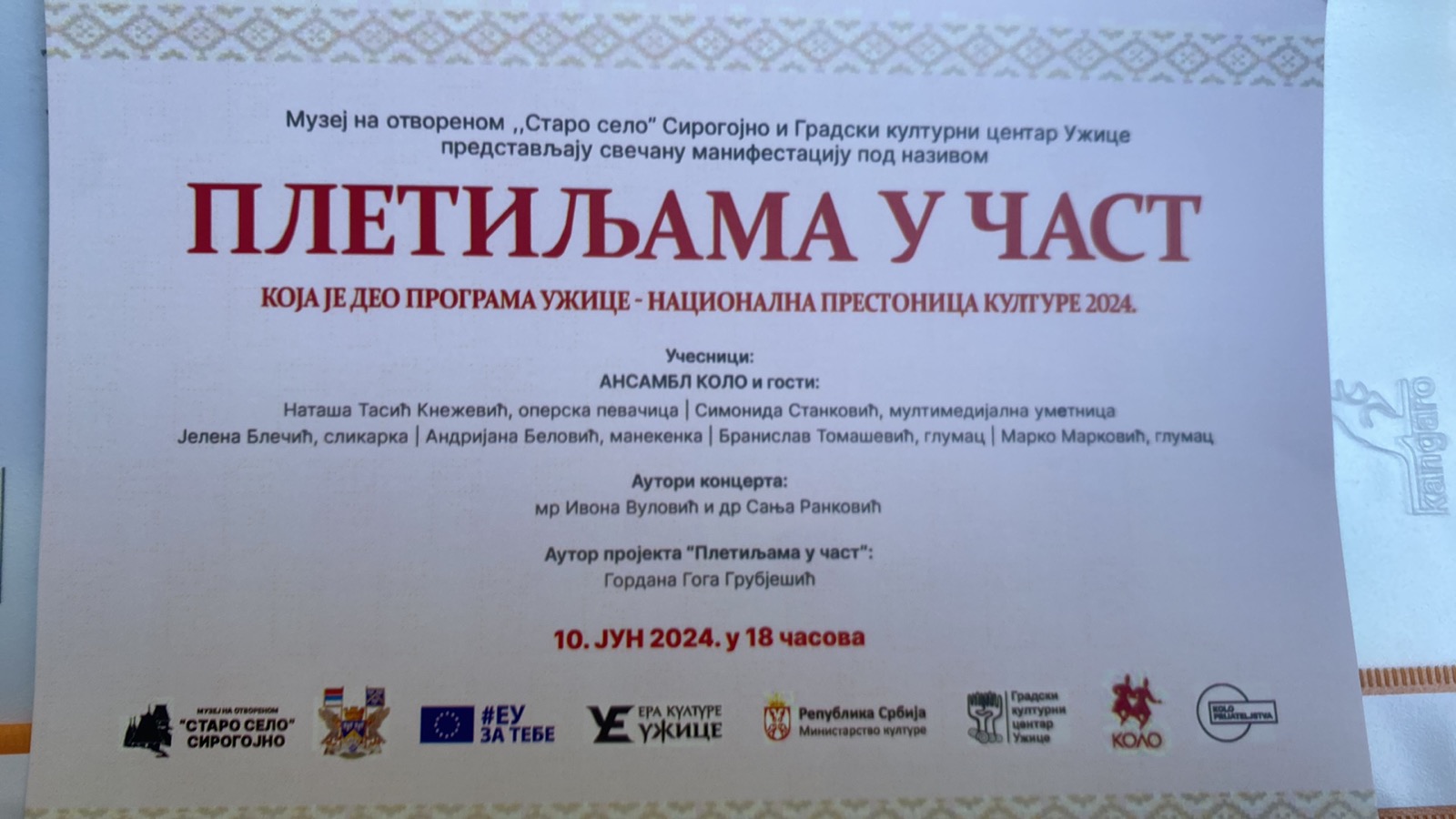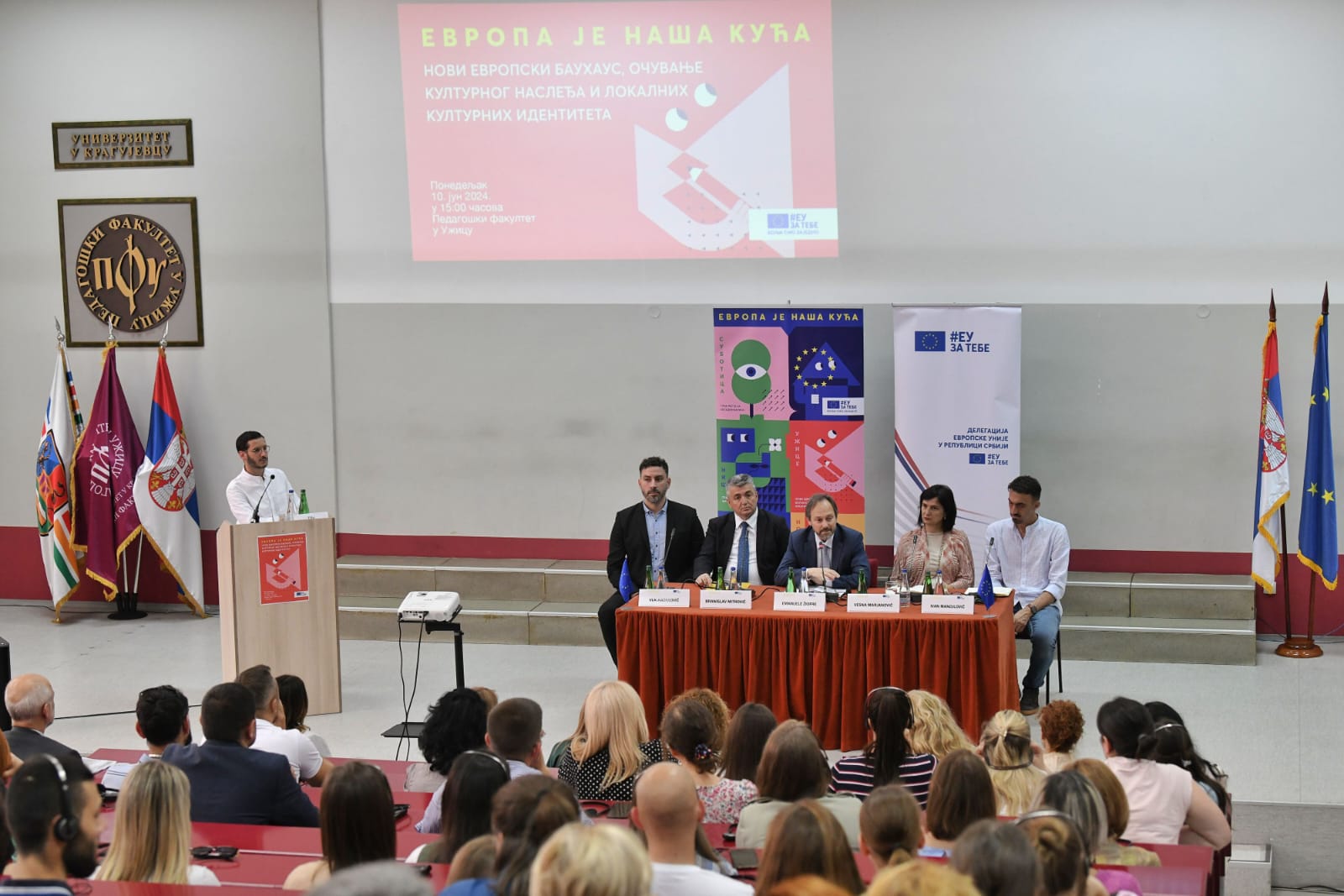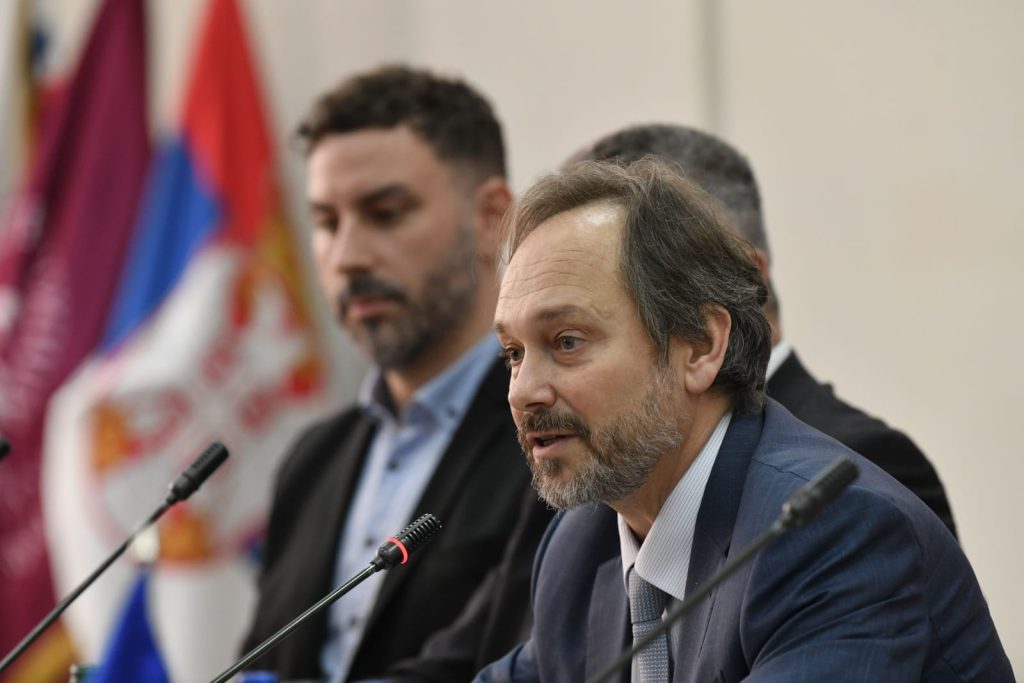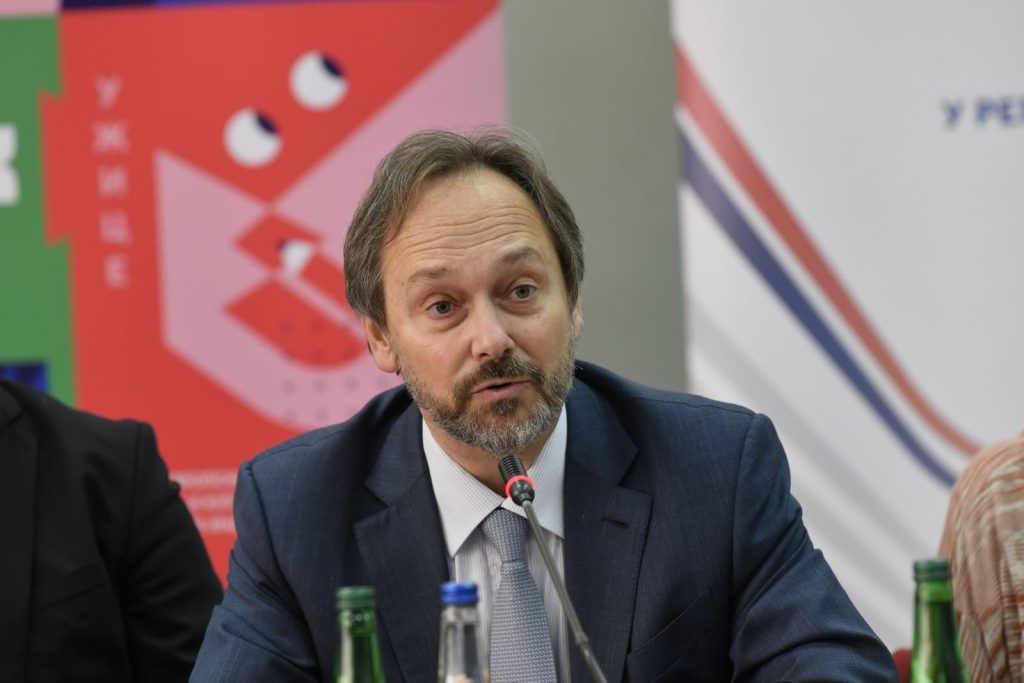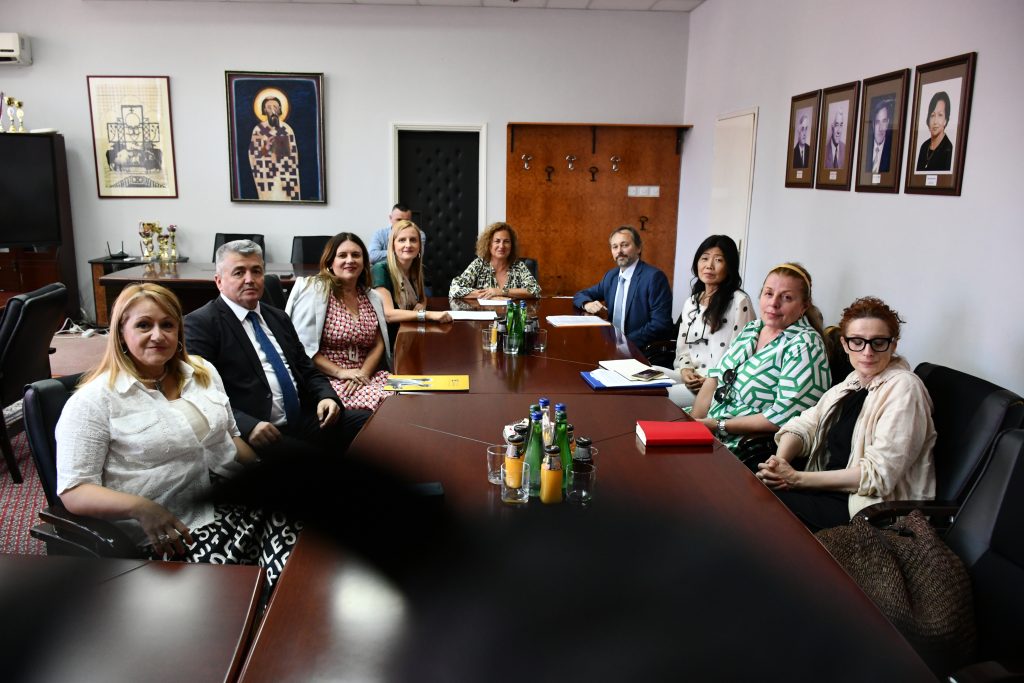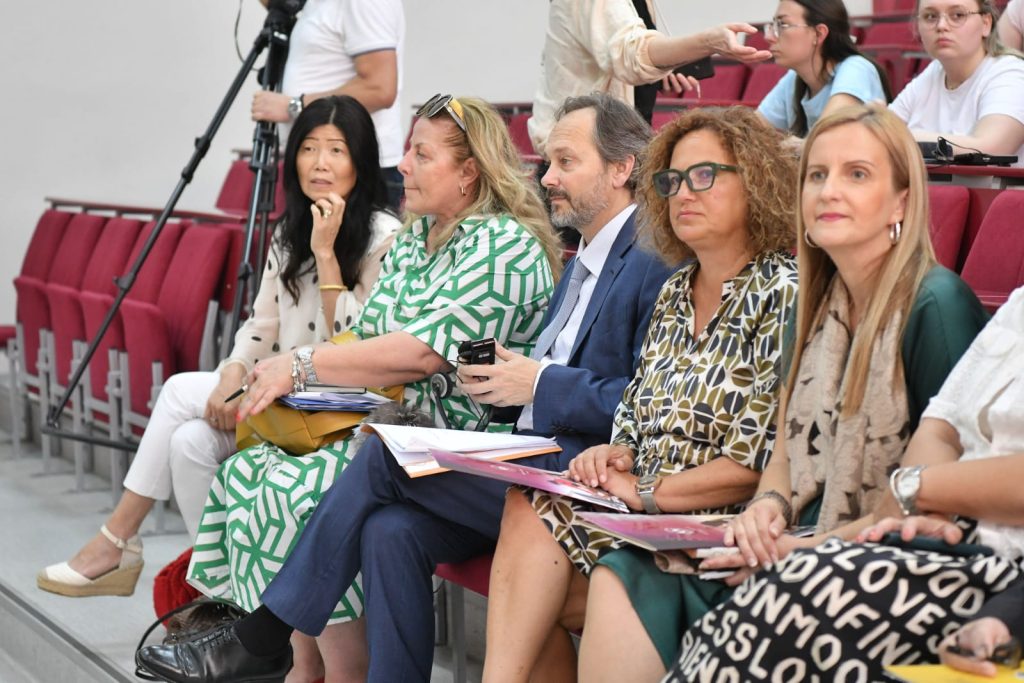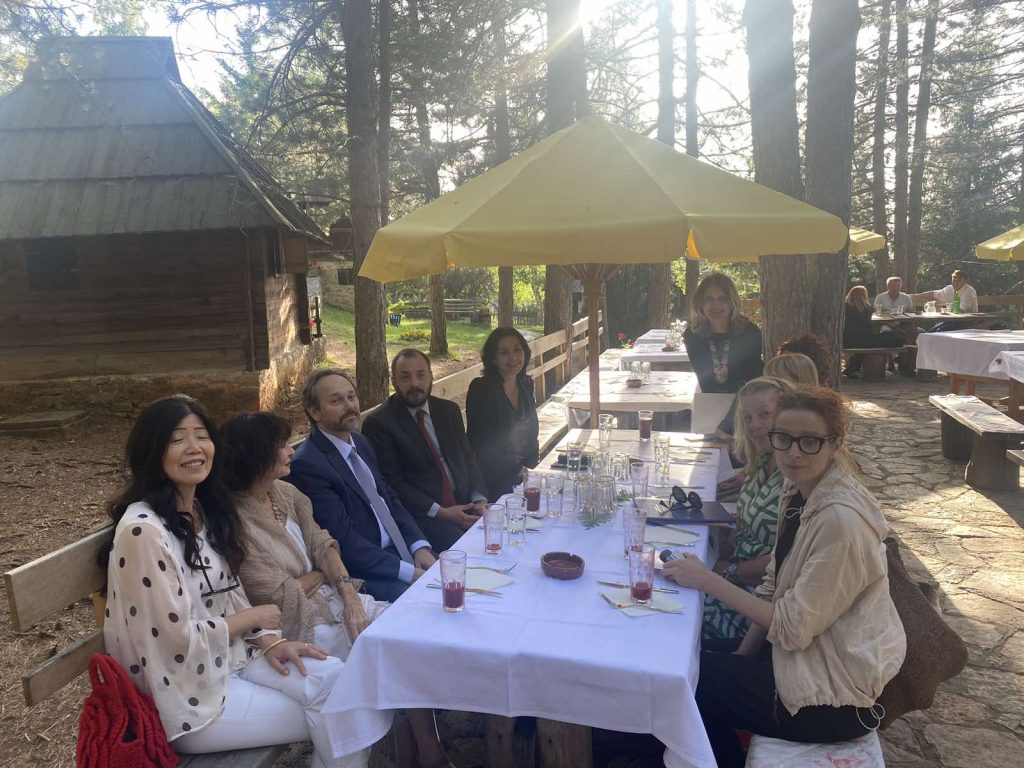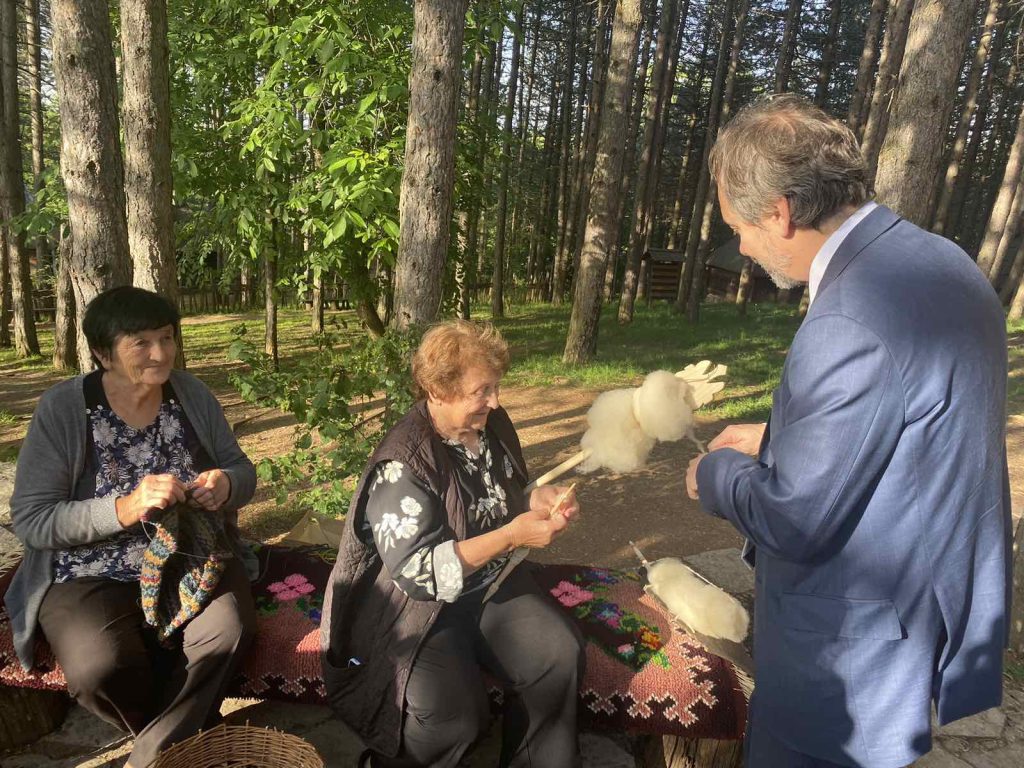Serbian cultural heritage is European heritage, and only together can we preserve our shared European cultural identity. This was the message conveyed during the panel discussion organised in Užice as part of the “Europe is Our Home” campaign.
To celebrate Europe Day 2024, the European Union Delegation aims to initiate a dialogue on cultural heritage and policies, with Užice chosen as this year’s national capital of culture.
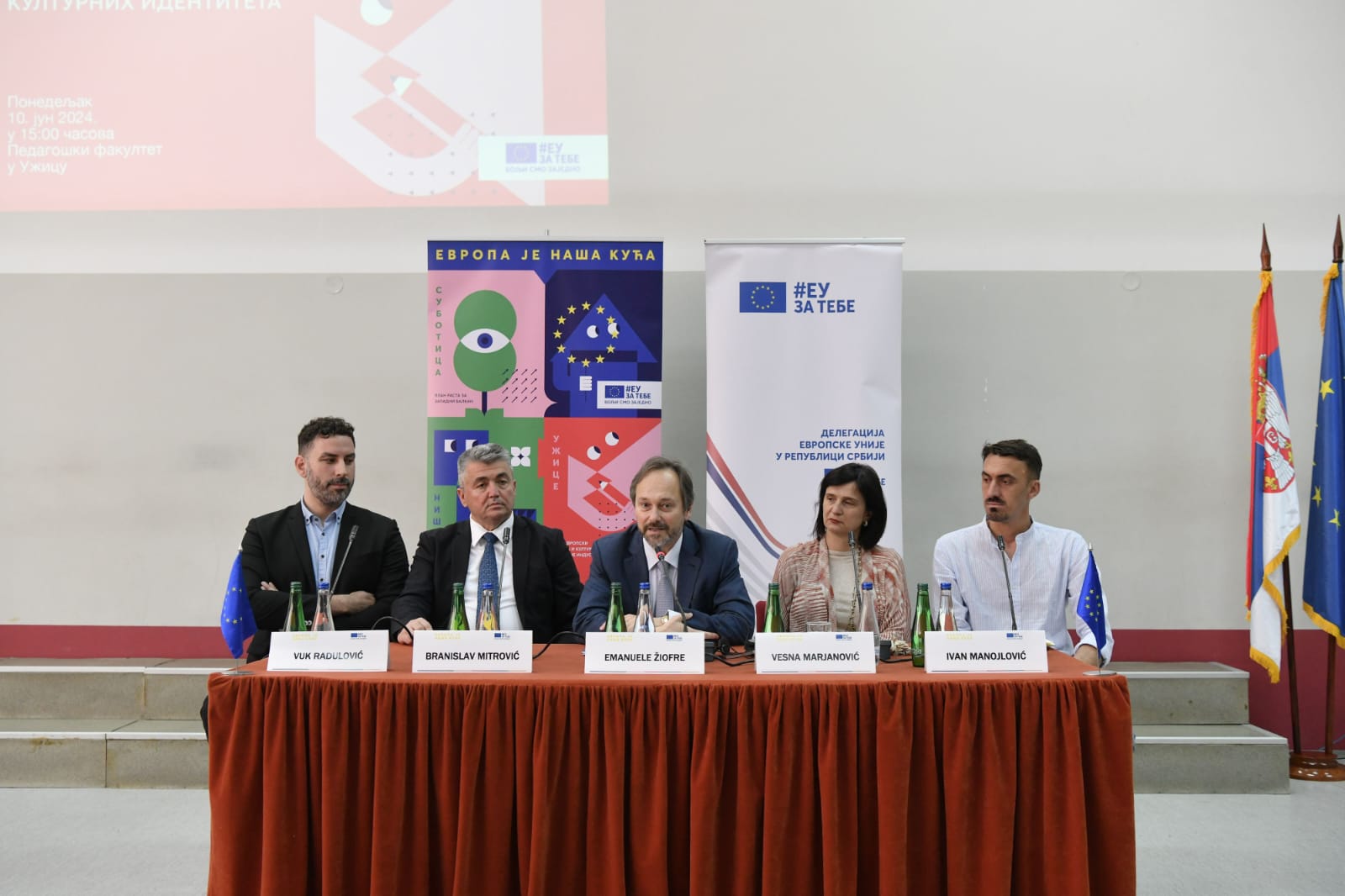
“The European Union is keen to collaborate with the citizens of Serbia on the protection of cultural heritage. Together, we strive for a stronger European Union with Serbia as a member, because Europe is indeed our home,” said Emanuele Giaufret, the EU Ambassador to Serbia.
The dialogue with citizens in Užice is the fourth in a series of five debates organized by the EU Delegation in Serbia as part of the “Europe is Our Home” campaign. Besides Užice, panel discussions have been held in Subotica, Novi Pazar, and Kragujevac, with the final one planned for Zaječar.
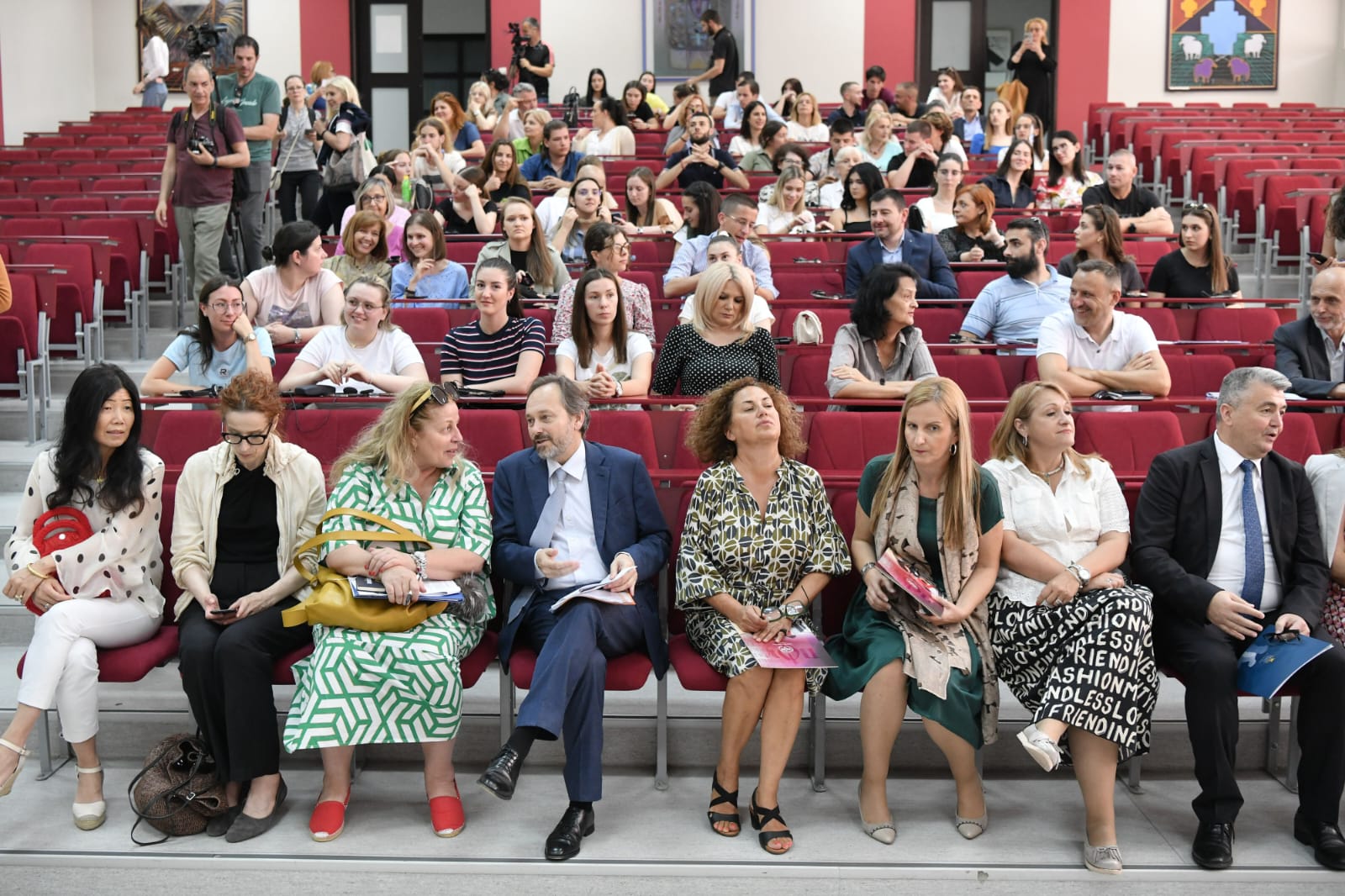
Alongside the EU Ambassador to Serbia, the panel included Branislav Mitrović, President of the Užice City Assembly and Coordinator of the Užice-Capital of Culture of Serbia program; Vuk Radulović, Head of the “Creative Europe” Desk; Vesna Marjanović, General Secretary of Europa Nostra Serbia; and Ivan Manojlović, Head of International Cooperation at Nova Iskra.
In addition to the discussion with young people about EU cultural policies, Ambassador Giaufret attended an event in Sirogojno. There, the heritage of Sirogojno knitters and a monograph on Dobrila Smiljanić, thanks to whom Sirogojno sweaters have gained global recognition, were promoted. The EU Delegation in Serbia supported the translation of this monograph into English and donated 100 copies to the “Old Village” Museum in Sirogojno, hoping that Dobrila’s story will be heard beyond Serbia’s borders.

Cultural heritage protection is a high priority, and the European Union aims to make this a central focus of the European Green Deal. The New European Bauhaus initiative intends to design new living spaces that are inclusive, sustainable, and in harmony with European cultural heritage and tradition.
The EU is also committed to protecting local identities and reviving endangered crafts to preserve the traditions and diversity of European people. In Serbia, the EU has assisted in the restoration of Golubac Fortress and Fetislam Fortress in Kladovo, the Franciscan Monastery in Bač, Pirot Fortress, the Subotica Synagogue, the Visitor Center in Lepenski Vir, the reconstruction of the “Jevremovac” Botanical Garden in Belgrade, and the renovation of the National Theatre in Belgrade.
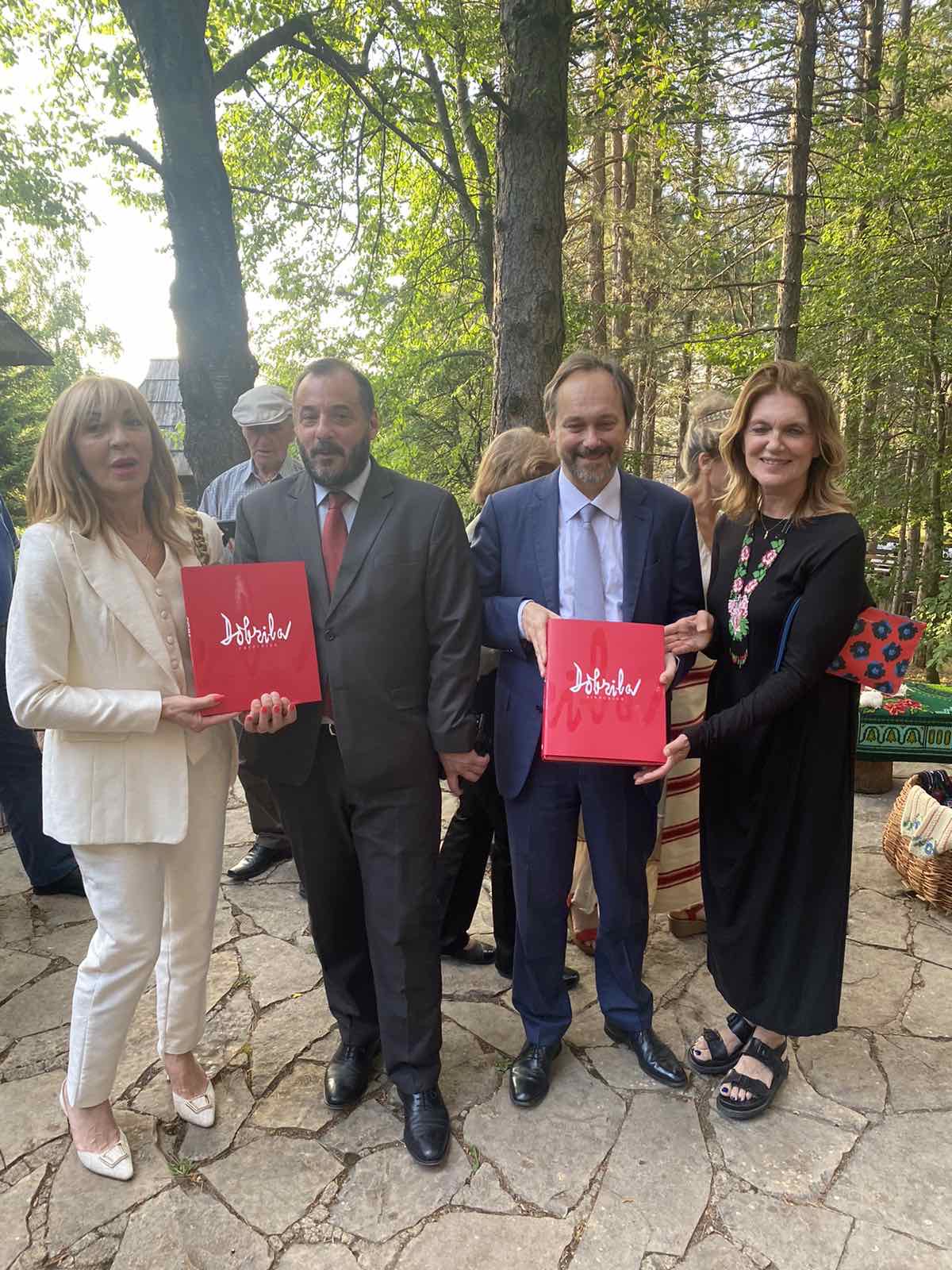
Through the “Creative Europe” program, the EU supports European cinema, art, literature, and creative industries. For ten years, cultural actors from Serbia have been successfully using this program under the same conditions as EU member states.
